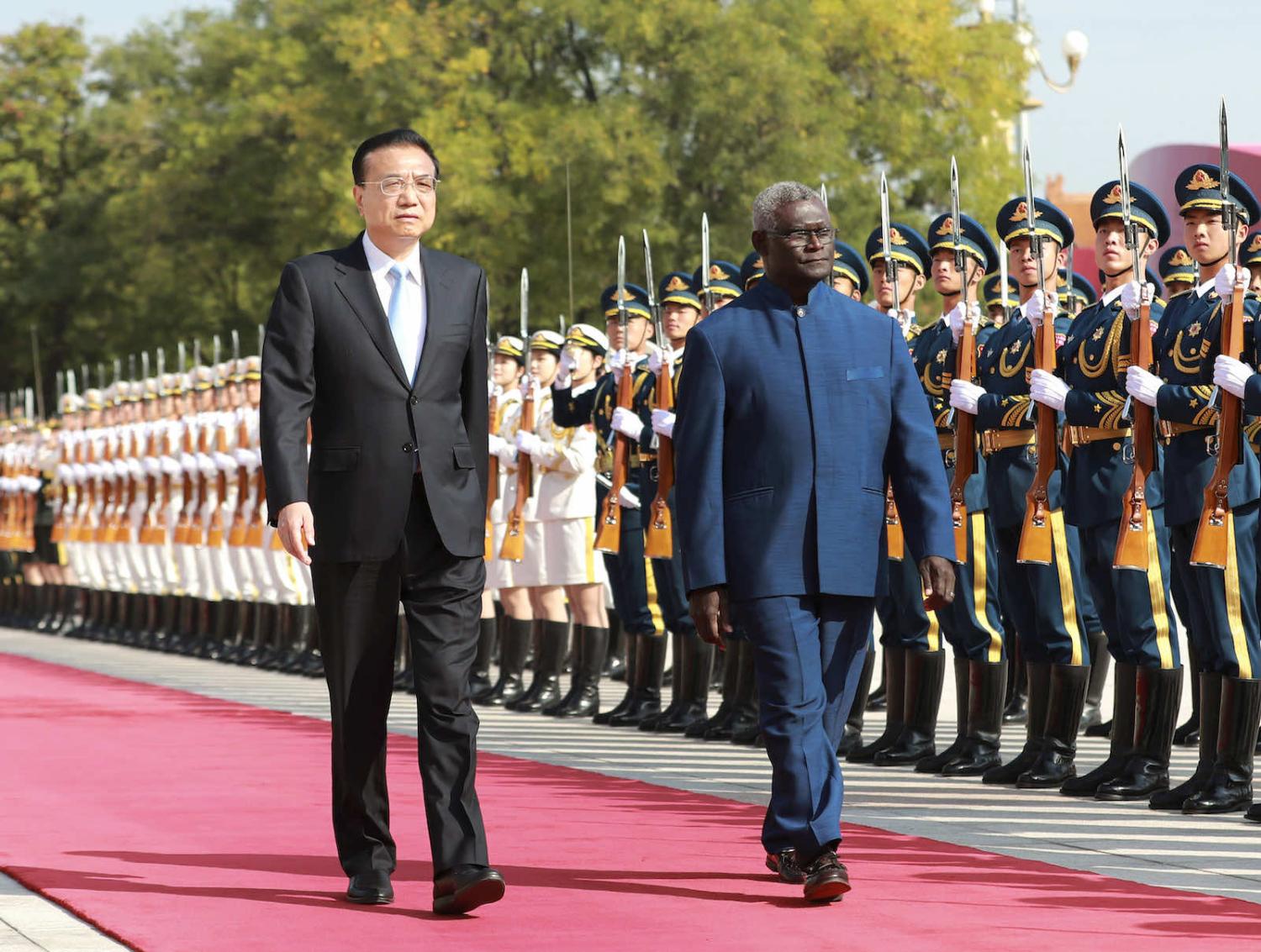Labor has described Solomon Islands’ security pact with China as Australia’s biggest foreign policy failure in the Pacific since the Second World War, but this is hyperbole. Australia’s biggest foreign policy failure in the region – ever – is its failure to address (at both a national and international level) the issue which poses the gravest single threat to the future viability of Pacific island countries as sovereign states: climate change. And it is this that has reduced Australia’s leverage in the region and made it harder to protect its vital economic and geostrategic interests there in the face of competition.
Solomon Islands Prime Minister Manasseh Sogavare is reported to have mentioned climate change as a driver of the decision to sign a security pact with China. His Pacific Island colleagues will not necessarily believe him, but they certainly won’t criticise his implicit criticism of Australia on this issue.
Australia’s efforts to mitigate climate change impacts in the region are no substitute for real and deep cuts to its own emissions. They resemble lifebuoys thrown to drowning people, without the promise of a lifeboat in the form of an undertaking to resettle, if they so wish, those whose homes Australia’s apparently inexhaustible complacency has helped to destroy. Perhaps the ultimate future irony will be an inclination on the part of other Pacific Island countries to take advantage of China’s demonstrated capacity to raise islands out of shallow seas.
This said, the Solomon Islands-China pact is more about domestic instability in Solomon Islands than it is about Australia or climate change, and it is mainly about Sogavare himself. Manasseh Sogavare is an extremely able and not infrequently cantankerous politician. In 2006–07, when he was prime minister for the second time, he accused Australia of interfering in domestic politics and expelled an Australian High Commissioner ostensibly for conspiring against him. He was encouraged in this endeavour by two deeply self-serving close advisers, one of whom I believe is still with him. I was the Australian diplomat to next fill the role as High Commissioner to Solomon Islands in 2007.
At the time, Australia was the lead country in the Regional Assistance Mission to Solomon Islands (RAMSI), whose task was to help restore order and rebuild the nation after years of ethnic violence. RAMSI had the strong support of, and indeed reported to, the Pacific Islands Forum, and included not only Australians and New Zealanders but also uniformed and civilian personnel from other Pacific Island countries.
The future of the pact under another prime minister may be at best uncertain.
Then, as now, the real danger to the integrity of Solomon Islands came from within. In the wake of last year’s anti-government riots – fuelled partly by the same ethnic tensions that led to RAMSI’s deployment in 2003, and partly by Sogavare’s 2019 switch from Taipei to Beijing on the back of some hefty Chinese investment promises – Sogavare is anxious to shore up his personal political fortunes. And he clearly believes China’s interests currently align closely with his own.
There is risk for China, though, because, unlike RAMSI – which manifestly strove to provide security for all Solomon Islanders – China is there only to secure its own interests, and the interests of some others, including the Chinese diaspora. This is already apparent to many Solomon Islanders, which suggests that the future of the pact under another prime minister may be at best uncertain.
In the meantime, it seems the pact allows Chinese police and military personnel to provide security assistance only in response to requests from the Solomon Islands Government (SIG) and for ship visits to take place only with the SIG’s agreement. These safeguards can of course be manipulated, but they do at least give a post-Sogavare government some room for manoeuvre.
This is a very serious issue, but Australia has yet to learn to take the Pacific Islands region seriously all the time, and not just when disaster strikes. I am not convinced that any Australian government is capable of this, in which case Australia’s regional future could in fact be quite dark.
A Chinese naval base in the South Pacific would obviously be bad for Australia and Pacific Island countries, but we are not there yet. In the meantime, it is worth bearing in mind that China is no stranger to the island Pacific. It already has longstanding security cooperation arrangements with Fiji and Tonga; and, in 1977, when Australia opened its diplomatic mission in what was then Western Samoa, China was there before it. There is no shutting China out of the South Pacific, which suggests that Australia will have to manage its relationships, with all these countries, rather better than it is doing now.

